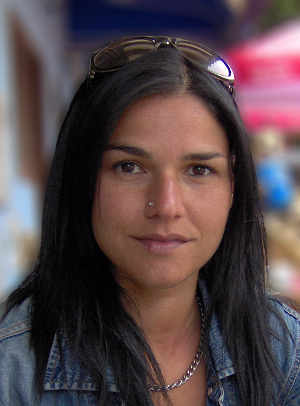Seeking causes of osteoarthritis

Osteoarthritis is caused by a complex interplay between genetic and environmental factors and is the most common musculoskeletal condition in older people. Around a third of people aged 45 years and over in the UK, almost nine million people, have sought treatment from their GP for osteoarthritis.
The researchers, Dr Kalliope Panoutsopoulou and Professor Eleftheria Zeggini from the Wellcome Trust Sanger Institute in Hinxton, Cambridgeshire, will now aim to identify genetic factors that lead to the development of osteoarthritis and look at how they interact with environmental factors to increase a person’s risk of developing the disease.
This particular study will focus on rare genetic variants which may have escaped detection using previous research and technologies. The team will also investigate the genetic differences in the clinical characteristics and disease severity seen between patients.
The £365,056 five-year study will build upon previous information made available from the arcOGEN project, the largest genetic study of osteoarthritis to date. Funded by Arthritis Research UK and involving researchers across the UK, including the Sanger Institute, the project identified nine genetic regions which are associated with disease. However there are also thought to be additional genetic variants yet to be identified. These may be less common in the population but may have a bigger contribution to people’s risk of osteoarthritis, making them attractive targets for future treatments.
“Establishing the genetic factors that predispose people to developing this debilitating and painful disease is a crucial first step in the research path towards developing new treatments. Investigating the genetic determinants that underlie differences in disease, for example severity, coupled with looking at environmental factors such as weight, will enable better therapies and more personalised treatment options.”
Dr Kalliope Panoutsopoulou Lead Investigator at the Wellcome Trust Sanger Institute
“Osteoarthritis can have a very negative impact on a person’s life causing loss of freedom of movement and pain. This important study could have far-reaching effects in terms of better understanding of the disease and identifying new treatment targets.”
Professor Alan Silman Medical director at Arthritis Research UK
Osteoarthritis can develop in any joint in the body, although the knee and hip are often the most commonly affected joints. In severe cases, osteoarthritis can be a substantial barrier to mobility and independence, affecting wellbeing and quality of life, by causing people’s joints to become painful and stopping them moving freely.
Arthritis Research UK is the leading authority on arthritis in the UK, conducting scientific and medical research into all types of arthritis and related musculoskeletal conditions. Receiving no government funding, it is the UK’s fourth largest medical research charity and the only charity solely committed to funding high quality research into the cause, treatment and cure of arthritis.
More information
Selected websites
Arthritis Research UK
Arthritis Research UK is the leading authority on arthritis in the UK, conducting scientific and medical research into all types of arthritis and related musculoskeletal conditions. It is the UK’s fourth largest medical research charity and the only charity solely committed to funding high quality research into the cause, treatment and cure of arthritis.
For further information, please email in the Arthritis Research UK press office or phone on 020 7307 2228.
Websites
The Wellcome Trust Sanger Institute
The Wellcome Trust Sanger Institute is one of the world’s leading genome centres. Through its ability to conduct research at scale, it is able to engage in bold and long-term exploratory projects that are designed to influence and empower medical science globally. Institute research findings, generated through its own research programmes and through its leading role in international consortia, are being used to develop new diagnostics and treatments for human disease.
The Wellcome Trust
The Wellcome Trust is a global charitable foundation dedicated to achieving extraordinary improvements in human and animal health. We support the brightest minds in biomedical research and the medical humanities. Our breadth of support includes public engagement, education and the application of research to improve health. We are independent of both political and commercial interests.


